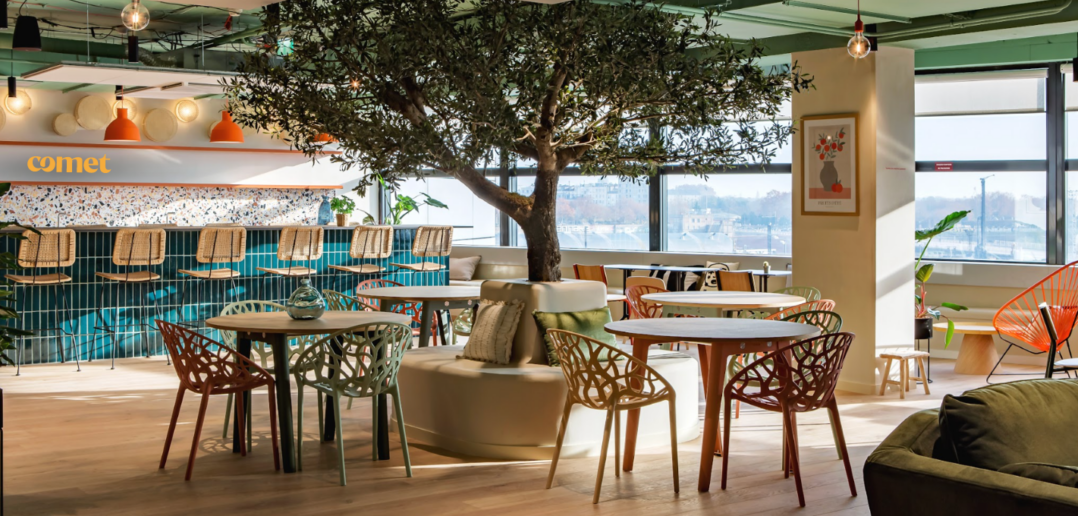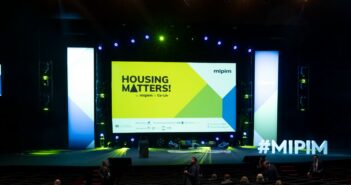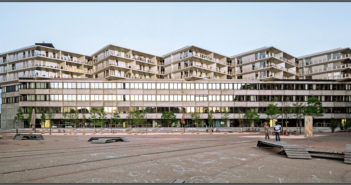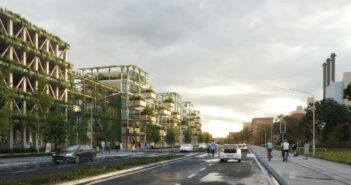Our office is undergoing a transformation. A place of life for some and a source of income for others, this real estate asset is directly exposed to the societal, environmental, and economic changes shaking our ecosystem.
Increased demand for flexibility, new hybrid work practices, the quest for financial security, and energy efficiency… significant macro and structural changes require a reorganization of the office and better alignment with user requirements as well as owners’ financial imperatives.
What if we were to draw inspiration from the revolution experienced by the hospitality industry to address these challenges? What if low-carbon requirements became an opportunity for everyone? What if diversifying the office offering could add value to users and owners alike?
The dual crisis of usage and values, a turning point for the future
The future of office real estate is marked by a dual crisis of usage and values. This crisis stems not only from a decrease in demand for square meters but also from a crisis in supply as it no longer meets the daily needs of users. In France, the market is mainly centered around the Paris region where office real estate is now obsolete and no longer meets the new needs of businesses and employees. The rise of telecommuting, increasing interest rates, environmental concerns, and organizational changes accelerated by COVID-19 have amplified a growing disaffection for traditional offices.
Indeed, the gap between how office spaces are perceived and used, and the actual needs of users is glaring. However, a glimmer of hope is gradually emerging: faced with this realization, companies are slowly recognizing the need to transform their offices into attractive spaces offering a positive and distinctive experience to employees, thus encouraging them to come to the office by choice rather than obligation.
In competition with other workspaces such as home or third places, the office plays a differentiating card by becoming a place of relationships, organized and designed to foster collaboration, meetings, and socialization. It is no longer strictly a place of production.
The « hotel-office » and low-carbon, a solution for users and owners
To be attractive, the office of tomorrow combines the intimate and the collective, both in the choice of materials and in the layout of its spaces or its portfolio of associated services. It becomes vital to create spaces that allow both intimacy and socialization, all in an energizing atmosphere.
The emergence of a new category of assets known as « hotel-offices » outlines a promising solution. These integrate not only the flexibility of the hotel model offering short or long-stay options but also the serviced approach of the sector to enhance the user experience and make these spaces a distinguishing element, even a talent retention tool.
The key to success in the office of tomorrow will then be to practice yield management by rigorously and flexibly managing the profitability of each square meter. By combining long-stay (leased), medium-stay (coworking), or short-stay (meetings & events) models, these new real estate assets ensure real success on both fronts. Not only do they enrich and flexibilize the offering proposed to companies and their employees, but they also diversify the revenues of real estate owners and thus contribute to derisking the financial management of office assets. On these issues of diversifying models and integrating a portfolio of services, operators such as Comet naturally emerge as ideal partners, genuine development duos, and next-generation asset managers.
Construction and valorization of a « hotel-office »: the strengths of the opco-propco tandem
The concept of a « hotel-office » focuses on user experience and the profitability needs of owners by developing a foundation enriched with services and a real guarantee of flexibility. To bring it to life by leveraging the expertise available, it is now evident that operators and owners must be brought closer together from the genesis of projects. The former will bring their knowledge of service animation and short and medium-term rental models, while the latter will share and apply their expertise in financial management and long-term profitability. Of course, this tandem will benefit from involving users and architects in the conversation to always be closer to the reality of usage and thus adapt spaces to real needs.
The office of tomorrow therefore directly depends on the close collaboration between different professionals in the sector, especially between real estate owners and the most innovative operators. This tandem is vital to staying close to the constant changes experienced by businesses and employees while guaranteeing a solid, derisked profitability of spaces. By combining the real estate management expertise of traditional players with the new services introduced by operators, creating more flexible, serviced, and user experience-focused workspaces will be both easier and financially attractive.



